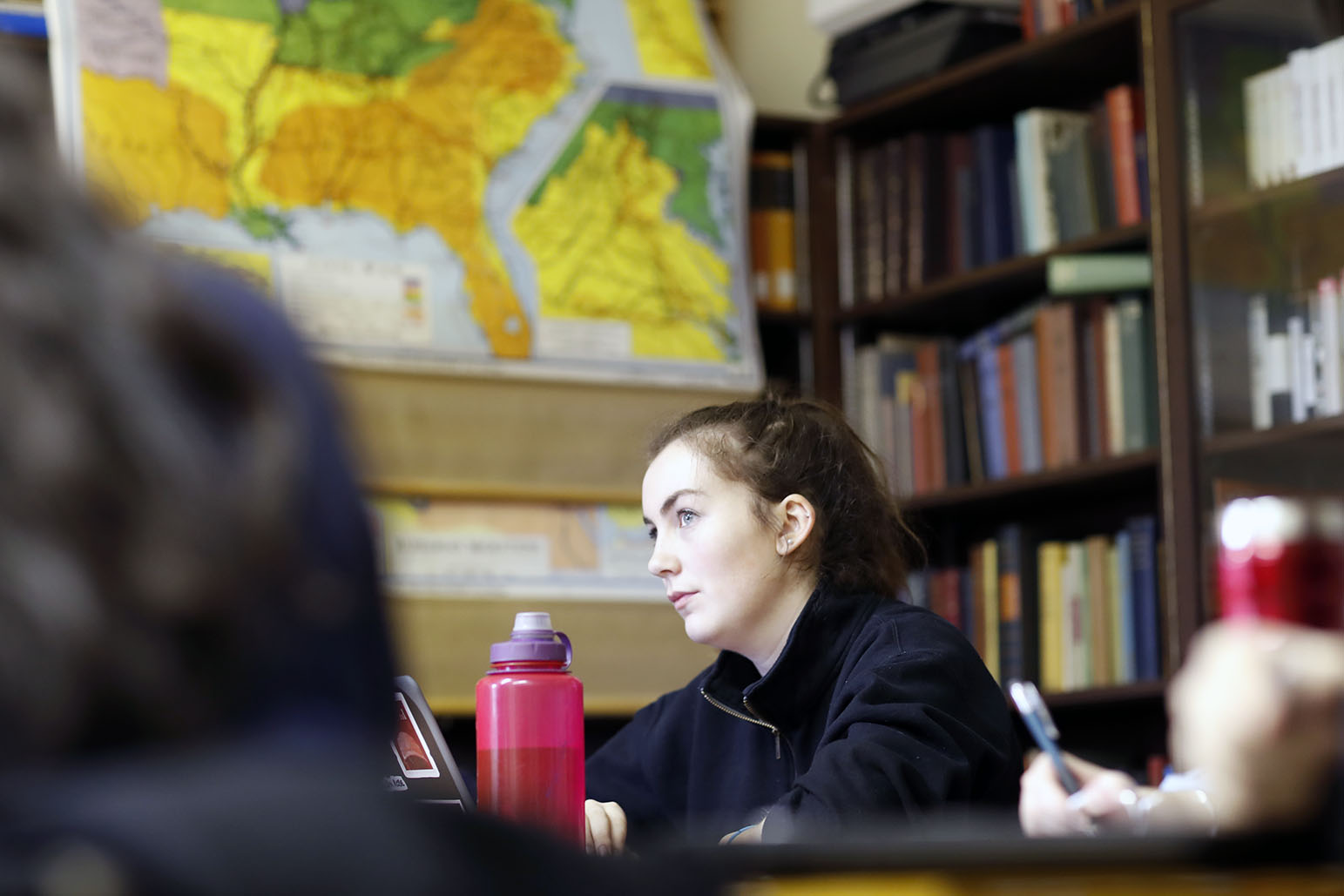Overview
History helps us understand the individuals, groups, ideas, and institutions that have shaped our world. It encourages critical analysis and helps develop your communication and writing skills.
At a Glance
Curriculum
At 91·ðÒ¯, History offers courses in a rich variety of both subject matter and interpretive approach through individualized programs.
Courses are regularly available at all levels in most major periods of Canadian, American, European, and Asian history.
Students will study the human experience in all its rich diversity by examining subjects like:
- class and gender
- wealth and poverty
- faith and science
- self and social identity
- government and politics
- war and peace
Unlike many programs, which begin with introductory courses, history offers courses on a diverse range of topics beginning in first year.
The number and variety of courses available increases each year, with the greatest selection in third year.
In fourth year there are also opportunities for independent studies, which permit you to pursue an interest in an area not covered by other courses.
History is available as:
- BA major (60 credits)
- BA honours (69 credits)
- Minor in any degree (24 credits)
Public History is available as an undergraduate certificate (18 credits).
Not sure about the difference between a major, a minor, an honours, and a certificate?

Related programs:
HIST 1601 — Old and New Nations in North America
This course examines themes in North American history from the sixteenth century to the 1860s, with a particular emphasis on the interaction of Indigenous, European, and West African peoples, and on the formation of the new states.
HIST 1631 — Greece and Rome: the Foundations of Western Civilization
This course surveys the political and social history of ancient Greece and Rome with a focus on the themes of Law, Politics, War, and Society. It pays particular attention to Athens in the fifth and fourth centuries B.C.E. and to Rome under Caesar Augustus.
HIST 2301 — Introduction to Environmental History
This course introduces students to the questions, concepts, themes, and tools of Environmental History. It does so by considering topics in Environmental History in Canadian and international contexts. At its core are matters of environmental justice and changing relations with land. The course emphasizes how to think about the environment as an important element of historical understanding and how to ask critical historical questions about contemporary environmental issues.
HIST 2801 — Indigenous Canada: a Historical Survey
This course explores the history of Indigenous peoples in Canada with a focus on the processes of colonialism, resistance, resurgence, and survivance.
HIST 3921 — The Presence of the Past: an Introduction to Public History
This course introduces students to the study and practice of Public History. The first part of the course focuses on how and for what purposes the past is represented for popular audiences or packaged for popular consumption in modern nation states. The second part explores Public History as a profession, through forms of experiential and community-engaged learning, such as workshops, field trips, and visiting speakers. Students will gain direct 'hands-on' experience of current professional practices by working, individually or collaboratively, on a major public history project.
HIST 3431 — Quebec from Confederation to the Sovereignty Movement
This course examines the political, religious, economic, and cultural development of Quebec since Confederation with particular emphasis on the growth of nationalism and the emergence of the sovereignty movement.
HIST 4001 — History Through Film
This course provides thematic study of topics in modern history through the medium of film, both feature and documentary. It reads the films critically both as art forms and as historical documents. It places particular emphasis on what films tell us about the particular historical context in which they were created.
HIST 4901 — Archives and Research Methods
This course focuses on advanced historical methods, issues in archival studies, and the development of a research project using local archives.
Find a full list of history courses in our
Careers
Whether you're entering the job market or continuing your education, your 91·ðÒ¯ degree will stand out.
91·ðÒ¯ has been recognized by Maclean's as the top primarily undergraduate university in Canada more times than any other university.
With and career development opportunities available in every degree, you'll also graduate with hands-on learning and real-world experience.
The skills and rigor which the study of history imparts make it an excellent preparation for many career paths. More than this, with its breadth and depth, it contributes to responsible global citizenship in a free and humane world.
Popular career paths for History graduates include:
- policy analyst
- public administrator
- archivist/librarian
- foreign service officer
- museum curator
- historic site information officer/site manager
- teacher/professor
- lawyer
- journalist
- conservation/restoration technician
- genealogical researcher
- arts administrator
Alumni Spotlight
The Honourable Justice David G. Near ('76)
Bachelor of Arts, History
Judge, The Federal Court of Appeal
» The paths of three Allisonians converge at Canada's Federal Court of Appeal

Testimonials

The 91·ðÒ¯ History department is full of caring professors who know the perfect balance of looking out for and challenging their students, and any of whom would happily give up their free time and energy to make for their students the best possible experience. The wide variety of courses and subject areas provides a solid foundation for those who seek to continue history study after MtA, and the honours and independent study options allow the development of research skills that served me well even in the most challenging post-graduate research environments.

There is no better place to study history than an institution that is built upon its own stories that have been passed down throughout generations. History is not only being taught in the classrooms at 91·ðÒ¯, it is also being made with each student that passes through its campus.
Extras
Experiential learning
History students at 91·ðÒ¯ have many opportunities to extend their learning outside the classroom, including as research assistants and teaching assistants, as well as through paid internships and summer work with historic societies in the region.
91·ðÒ¯ Archives
The 91·ðÒ¯ Archives, located on the top floor of the library, is responsible for preserving records created by the University dating back to 1839 and making them accessible to the public.
Records include paper documents and photographs, artifacts, electronic records, maps, and films.

/current-students/department-history
Admission Requirements
Academic Awards
Mount A is #2 in student awards
²Ñ²¹³¦±ô±ð²¹²Ô’s ranks 91·ðÒ¯ second in student and faculty awards in its latest University Rankings. To date, 56 91·ðÒ¯ students have become Rhodes Scholars — one of the best per capita records in Canada.

